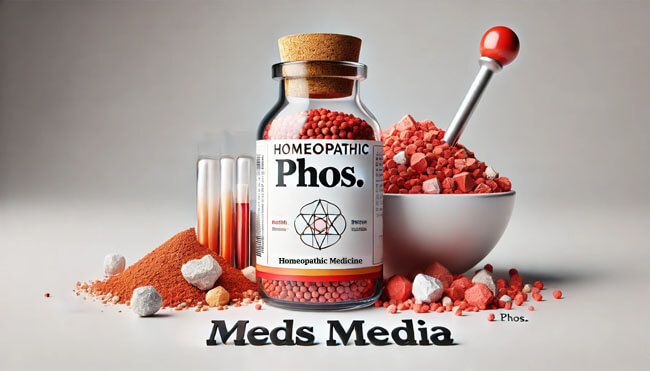Introduction to Twelve Tissue Remedies
The Twelve Tissue Remedies, also known as Schuessler Cell Salts, are a fundamental aspect of homeopathy, developed by Dr. Wilhelm Heinrich Schuessler in the 19th century. These remedies are based on the idea that the human body requires a balance of 12 essential minerals, which are naturally present in the body’s cells. Any deficiency in these minerals can lead to various health issues, and the use of these remedies is aimed at restoring balance and promoting overall health.
Understanding Twelve Tissue Remedies
What Are Twelve Tissue Remedies?
The Twelve Tissue Remedies are homeopathic preparations of minerals that are essential for the functioning of the human body. These minerals include calcium, potassium, sodium, iron, magnesium, and silica, among others. According to Dr. Schuessler’s biochemic theory, these cell salts are the building blocks of the body, and maintaining the right balance of these minerals is crucial for optimal health.
How Do Twelve Tissue Remedies Work?
The principle behind these remedies is simple: when the body lacks certain minerals, it can lead to various symptoms and health conditions. The Twelve Tissue Remedies work by supplying the body with the deficient minerals in a highly diluted form, making them easily absorbable by the body’s cells. This process helps restore the body’s natural balance and supports the healing process. Each of the twelve remedies corresponds to a specific mineral and is associated with particular symptoms and conditions.
The Twelve Tissue Remedies
Here is a detailed look at each of the Twelve Tissue Remedies, including their names, brief indications, symptoms, and uses:
- Calcarea Fluorid (Calcium Fluoride)
- Indication: Tissue elasticity and support
- Symptoms: You may notice a loss of elasticity in the tissues, leading to conditions like varicose veins, hemorrhoids, and hardened arteries. The skin may become rough, cracked, or exhibit hard swellings. There could also be a tendency for dental issues such as enamel decay or weak, brittle teeth. Joint stiffness and bone malformations may also indicate a deficiency in Calcarea Fluorid, particularly in cases where the body’s support structures are compromised.
- Uses: Strengthens bones and teeth, supports tissue elasticity, and helps with conditions like varicose veins and hemorrhoids.
- Calcarea Phos. (Calcium Phosphate)
- Indication: Bone health and development
- Symptoms: A deficiency in Calcarea Phos may present as delayed physical growth in children, including slow development of bones and teeth. There may be frequent bone fractures, weak or brittle bones, and difficulty in recovering from injuries. General weakness, fatigue, and a lack of vitality may also be present. In addition, the person might experience poor digestion, flatulence, and a feeling of coldness in the extremities, indicating the body’s struggle to build and repair tissues efficiently.
- Uses: Aids in bone development, especially in children, and assists in the healing of fractures.
- Calcarea Sulph. (Calcium Sulphate)
- Indication: Skin health and wound healing
- Symptoms: This remedy is indicated when there are slow-healing wounds or abscesses that tend to discharge yellowish pus. Skin conditions like acne, boils, or ulcers that are prone to becoming infected are common symptoms. You may also notice a tendency for the skin to become rough and scaly. Persistent coughs with thick, yellow mucus, and sinus infections that don’t resolve easily, are additional signs that Calcarea Sulph might be needed.
- Uses: Promotes the healing of wounds and is beneficial for skin conditions such as abscesses and acne.
- Ferrum Phos. (Iron Phosphate)
- Indication: Oxygenation of blood and inflammation
- Symptoms: Early signs of inflammation, such as redness, heat, swelling, and pain, are key indicators of Ferrum Phos deficiency. The person may experience symptoms of low-grade fever, fatigue, and a general feeling of weakness. Additionally, there might be headaches, sensitivity to light, and a flushed appearance. Respiratory issues such as mild congestion, nosebleeds, or early-stage colds with thin, watery mucus are also common. The person may feel weak and tired but lacks specific, intense symptoms.
- Uses: Helps with the oxygenation of the blood and is used to treat inflammatory conditions, fevers, and early infections.
- Kali Muriaticum. (Potassium Chloride)
- Indication: Mucus membrane health
- Symptoms: Symptoms often involve the buildup of thick, white, or grayish mucus, particularly in the throat, nose, and chest. The person may suffer from blocked sinuses, a persistent cough with white phlegm, and a coated tongue. Digestive issues like indigestion, bloating, and nausea after eating fatty foods may also occur. Additionally, there might be glandular swelling, such as enlarged tonsils or lymph nodes, and a general feeling of sluggishness.
- Uses: Works in fibrin production and is used for conditions related to mucus, such as colds, coughs, and sinus problems.
- Kali Phosphoricum. (Potassium Phosphate)
- Indication: Nervous system health
- Symptoms: Mental and emotional symptoms are prominent, including anxiety, depression, irritability, and an overall feeling of nervous exhaustion. The person may experience insomnia, poor concentration, and memory issues. Physical symptoms can include weakness, trembling, or muscle fatigue, especially after minimal exertion. Headaches, especially those that worsen with mental effort, and a sensation of brain fog are also common. The person might feel overwhelmed by stress and easily fatigued by daily activities.
- Uses: Essential for nerve function, it helps alleviate symptoms of mental fatigue, anxiety, stress, and depression.
- Kali Sulphuricum. (Potassium Sulphate)
- Indication: Skin and respiratory health
- Symptoms: There may be skin conditions characterized by scaling, peeling, or a yellowish discoloration, particularly in eczema or psoriasis. The person might also experience respiratory issues like a lingering cough with yellow mucus, sinusitis, or chronic bronchitis. There may be a general feeling of discomfort in warm environments, with a preference for fresh air. Additionally, the person might experience dandruff, hair loss, or slow healing of skin conditions that seem to persist despite treatment.
- Uses: Aids in oxygen transportation and is beneficial for skin conditions like eczema and dandruff, as well as respiratory issues.
- Magnesia Phosphorica. (Magnesium Phosphate)
- Indication: Muscle and nerve function
- Symptoms: Sudden, sharp, shooting pains or cramps that are relieved by warmth and pressure are key symptoms. The person may suffer from muscle spasms, neuralgic pain, or menstrual cramps. There could be a tendency for twitching muscles, restless legs, or spasmodic coughing. Digestive disturbances, such as colicky pains, gas, and bloating, are also common. The pain is often intermittent but can be intense, with a tendency to come on suddenly and disappear just as quickly.
- Uses: Relieves muscle cramps and spasms, and is used for neuralgia and menstrual pain.
- Natrum Muriaticum. (Sodium Chloride)
- Indication: Water balance and hydration
- Symptoms: Symptoms often include dehydration with dry skin, chapped lips, and a general lack of moisture in the body. The person may experience headaches, particularly migraines triggered by stress, sunlight, or skipping meals. Emotional symptoms such as sadness, weepiness, and difficulty letting go of past grievances are common. Digestive issues like constipation, bloating, or a sensation of dryness in the digestive tract may also occur. The person might feel tired, irritable, and have difficulty concentrating, especially when dehydrated.
- Uses: Regulates water balance in the body and is helpful for conditions such as dehydration, headaches, and digestive problems.
- Natrum Phosphoricum. (Sodium Phosphate)
- Indication: Acid balance and digestion
- Symptoms: Acidic conditions are a hallmark, including heartburn, sour stomach, and acid reflux. The person may experience symptoms such as a yellowish coating on the tongue, sour belching, and a feeling of fullness after eating. There may be a tendency toward indigestion, flatulence, and diarrhea, particularly after consuming rich or fatty foods. Additionally, symptoms like irritability, restless sleep, and a craving for salty or spicy foods may indicate a need for Natrum Phos.
- Uses: Helps balance acidity in the body and is used for digestive issues, including heartburn and acid reflux.
- Natrum Sulphuricum. (Sodium Sulphate)
- Indication: Liver and digestive health
- Symptoms: Symptoms often involve water retention, with swelling in the ankles, puffiness under the eyes, or a general feeling of bloating. The person may suffer from digestive issues such as diarrhea, particularly in the morning, or a tendency toward biliousness and liver discomfort. There may be a dull headache, a heavy feeling in the head, or a sense of mental fogginess. The person might also experience respiratory issues, such as a cough with greenish mucus, or sensitivity to damp weather.
- Uses: Assists in eliminating excess water from the body and supports liver function, making it useful for liver-related issues and water retention.
- Silicea (Silicic Acid)
- Indication: Skin, hair, and connective tissue health
- Symptoms: A deficiency in Silicea often presents as weak, brittle nails, hair loss, or dry, fragile hair. The skin may be prone to infections, abscesses, or slow-healing wounds that tend to ooze pus. There may be a tendency toward recurrent infections, particularly of the skin and respiratory tract. The person might experience symptoms like excessive sweating, particularly of the feet, and a general feeling of being chilly or cold. Additionally, there may be a lack of resilience, both physically and emotionally, with a tendency to feel overwhelmed by stress.
- Uses: Strengthens connective tissues and is beneficial for conditions related to the skin, hair, and nails, as well as for promoting the expulsion of pus from abscesses.
Required Blood Tests
To identify potential deficiencies in the minerals associated with the Twelve Tissue Remedies, the following blood tests can be considered:
- Comprehensive Metabolic Panel (CMP):
- Provides a broad overview of the body’s metabolic state, including calcium, potassium, and sodium levels.
- Electrolyte Panel:
- Focuses on sodium, potassium, chloride, and bicarbonate levels, which are crucial for understanding the body’s electrolyte balance.
- Calcium Blood Test:
- Measures the level of calcium, which is related to Calcarea Fluorid, Calcarea Phos., and Calcarea Sulph.
- Magnesium Blood Test:
- Assesses magnesium levels, relevant to Magnesia Phos.
- Iron Panel:
- Determines iron levels, important for Ferrum Phos.
- Phosphate Test:
- Measures phosphate levels, which are linked to Calcarea Phos. and Natrum Phos.
Insights
The Twelve Tissue Remedies offer a natural, non-invasive approach to health by addressing mineral deficiencies in the body. While these remedies can be an effective part of a homeopathic treatment plan, it’s important to consult with a healthcare provider to ensure they are used appropriately. Integrating modern diagnostic methods, such as blood tests, can enhance the accuracy of treatment and ensure that the remedies are targeting the correct deficiencies.
Moreover, understanding the specific roles of each tissue salt can help practitioners and patients alike make informed decisions about their use. This approach not only supports overall health but also aligns with the principles of homeopathy, which emphasize treating the individual as a whole.
Select Your Homeopathic Medicine Dose and Potency
Potency Selection Guide
Relationship of Remedies
Why Meds Media guides are different
We focus on clear, practical explanations of homeopathic and natural health topics so you can understand remedies, symptoms, and lifestyle changes in simple language.
Meds Media is an educational resource only. Always consult a qualified doctor or homeopathic practitioner before starting, stopping, or changing any treatment.
Similar Posts You may also like

LM Potencies in Homeopathy Explained | Insights from the 6th Edition of the Organon
Zincum Picricum Homeopathic Medicine & Personality | Uses, Benefits & Indications
Zincum Phosphoricum Homeopathic Medicine & Personality | Uses, Benefits & Indications
Zincum Iodatum Homeopathic Medicine & Personality | Uses, Benefits & Indications
Zincum Bromatum Homeopathic Medicine & Personality | Uses, Benefits & Indications
Zea Homeopathic Medicine & Personality | Uses, Benefits & Indications
Zincum Aceticum Homeopathic Medicine & Personality | Uses, Benefits & Indications
Zincum Cyanatum Homeopathic Medicine & Personality | Uses, Benefits & Indications
Zincum Muriaticum Homeopathic Medicine & Personality | Uses, Benefits & Indications
Zincum Oxydatum Homeopathic Medicine & Personality | Uses, Benefits & Indications
Zincum Sulphuricum Homeopathic Medicine & Personality | Uses, Benefits & Indications

Phosphorus Homeopathic Medicine & Personality | Uses, Benefits & Indications
Causticum Homeopathic Medicine & Personality | Uses, Benefits & Indications

Blood Clot in Eyes: Symptoms, Homeopathic Treatment & Prevention

Veratrum Viride Homeopathic Medicine & Personality | Uses, Benefits & Indications

Spongia Tosta Homeopathic Medicine & Personality | Uses, Benefits & Indications

Zingiber Officinale Homeopathic Medicine & Personality | Uses, Benefits & Indications

